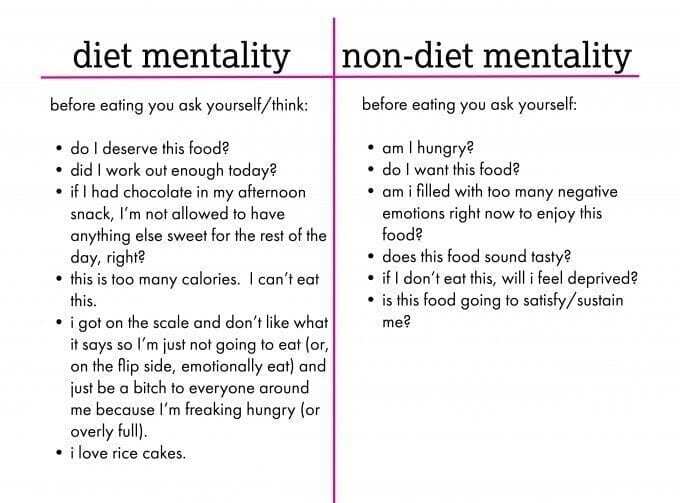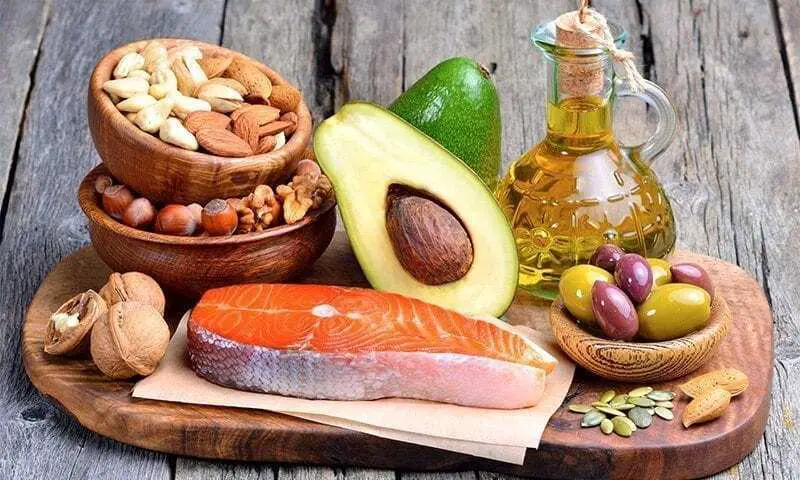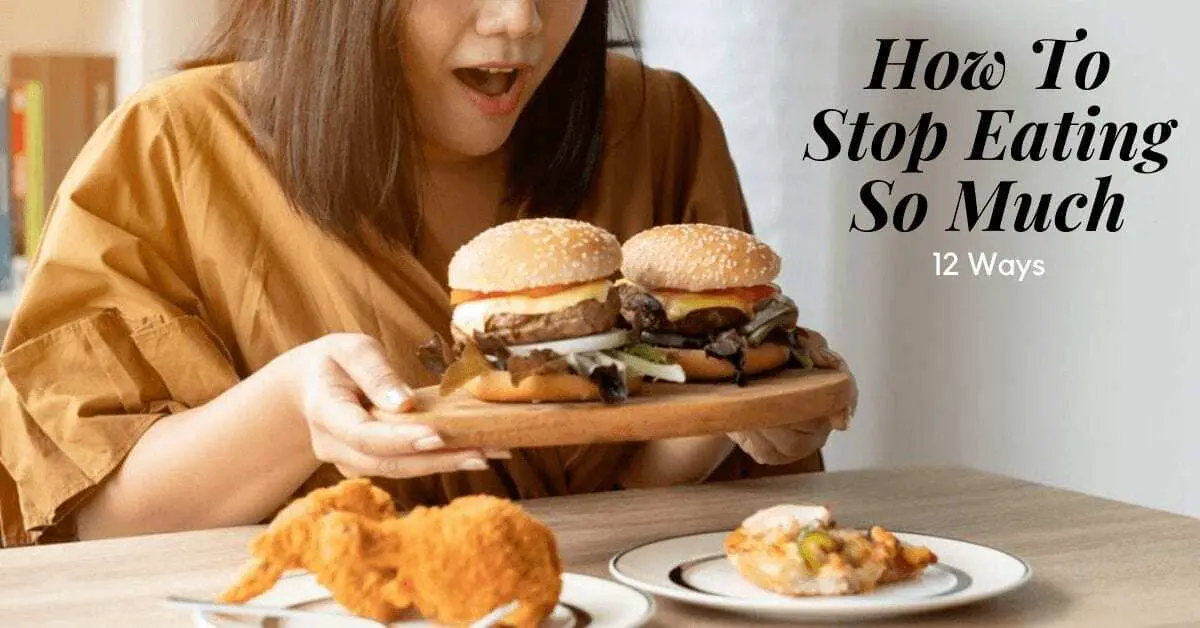In ancient times starvation was the leading cause of death, if you survived past infancy. Lacking food was the second leading cause of death.
- food crops would be eradicated
- animal populations would migrate
- it was just tougher back then!
Boy, oh boy, times have changed. While approximately half of the world’s population still faces death from starvation, the other half of the world has the opposite problem. For the other 3.5 billion people, the greater threat of death is being too likely to overeat.
Today many of us no longer fear death by starvation. In the United States, multi-billion dollar for-profit corporations have a need to increase their stock prices. To make an extra buck, food corporations devise clever ways to increase food intake and sell more of their product.
(And often diet and weight loss companies just outright lie to you)
Plus, there are endless distractions and multiple food choices, and your life style is becoming increasingly fast paced. What’s a person to do in all this madness?!
While the occasional party or vacation where you eat too much won’t cause that much harm, a combination of factors make overeating one of the leading contributors of death. One random occasion where you overeat is actually pretty normal – but dangerous when it’s a habit.
Put simply for many people, overeating causes diabetes, high blood pressure, and a host of other health concerns.
There’s good news though. There are some straightforward ways you can apply relatively easily to help regulate appetite and stop emotional eating and losing control.
12 Ways To Stop Eating So Much And Losing Control
- Ditch The Diet Mentality (The Math Behind Binge Eating)
- Eat Meals Regularly
- Consume Foods High In Fiber
- Eat Good Fats
- Stay Hydrated With Water
- Get A Lot Of Protein
- Don’t Eliminate Foods (A Cause Of Binge Eating)
- Keep A Compassionate Food Journal
- Practice Mindful Eating
- Plan Your Day Ahead
- Know Your Values
- Go With Your Appetite (Especially On Exercise Days!)
In addition to these 12 strategies, I will also be answering 3 common questions about how to stop eating that have been sent my way.
1) Ditch The Diet Mentality

Attempts to diet and lose weight very frequently go together with overeating . Sometimes a “what came first, the chicken or the egg?” pattern unfolds:
- You first overeat (for example on vacation), and then try a diet for some weight loss.
- You first diet to lose weight, but then overeat because diets aren’t sustainable.
Dieting and overeating go hand in hand.
And oftentimes, people “diet” without even knowing it. Oftentimes people use food like ice cream and junk food to manage their anxiety, stress and depression. When times get tough, it can be easy to turn to these kinds of food and experience weight gain.
Also, any type of weight gain may be followed by restrictive eating. This might be something casual like:
- I’ll skip lunch today
- I overate yesterday, so I’ll only have veggies and protein today
Believe it or not, these innocuous attempts to skip foods are actually diets in disguise.
And all diets lead to binge eating. It’s critical to understand this point.
Oftentimes however, binge eating disorder is a deeply embedded overeating habit, meaning that seeking the assistance from a mental health professional is highly advised.
2) Eat Meals Regularly
It’s quite natural to think that if you skip meals, you will lose weight. This is true, but only temporarily.
Skipping a few meals will result in a caloric decrease. But because you are starving your body, your body will react in due time by binge eating or overeating.
For example, you may skip breakfast and then overeat at lunch. Or you might accidentally miss lunch but then eat far too much at dinner.
At a minimum, you’ll need to eat 3 meals per day and probably a few snacks too.
3) Consume Foods High In Fiber
Fiber is found primarily in plants and fruits. Foods that are high in fiber include:
- beans, peas, lentils
- vegetables, with highest sources being leafy greens and sweet potatoes
- oats
- nuts and seeds, including spreads such as peanut butter
- fruit, especially berries, oranges and bananas
- whole grains, like whole wheat bread or brown rice
Why does fiber help you to stop eating so much and losing control of your hunger? Fiber makes you feel full and prevents your hunger from overtaking you too quickly. Your body feels satisfied for hours longer if you have foods that are high in fiber, in comparison to foods that are low in fiber.
What are foods that are low in fiber? Think boxes – like cereal boxes, fast food that comes in boxes, and pizza that comes in pizza boxes. These are just examples, there are many other foods that are also low in fiber.
These foods are made up of ‘processed carbohydrates’. Processed carbohydrates is a fancy word for ‘man-made’. Factories somewhere in the world churn out ‘processed carbohydrates’ on a conveyor belt machine and these make their way into various boxes and packages.
But if you eat pizza, does your body really stay full for that long? What about a sugary bowl of typical kids’ cereal? Aren’t you hungry an hour later?
These foods are low in fiber. They quickly pass through your digestive system and leave you hungry in a short amount of time.
In contrast, in an Oatmeal Versus Cornflakes 2015 study, participants who had whole grain oatmeal for breakfast – instead of processed cornflake cereal – reported feeling full for much longer, feeling less hunger, and eating less at lunch time than their counterparts who ate cornflakes or just had water for breakfast.
Keep this principle in mind – staying full for longer and eating less overall – as it’s the key in upcoming principles.
4) Eat Good Fats

Fat gets a bad rap. We tend to hear the word ‘fat’ and think it must be bad. And for the most part, the foods that you associate with ‘fat’ probably aren’t that nutritious.
For example, when I think about foods that are fat, I think of donuts.
(I’m pretty sure I have this association because of Homer Simpson. The Simpsons was probably my most watched childhood television show. Doh!)
Yet not all ‘fats’ are bad. In fact, using the principle above regarding fiber – staying full for longer, experiencing less hunger, and eating less overall – incorporating fats into your diet can be even more beneficial than high fiber foods!
Here are some foods with fats that are nutritious:
- avocados
- full fat greek yogurt
- lean cuts of meat
- nuts (notice how nuts are high in fiber and in good fats? Hint: eat more nuts!)
- olive oil
5) Stay Hydrated With Water

People sometimes eat when they are actually thirsty.
Your body when thirsty emits a craving for water. However, it’s easy to mis-interpret that signal and think your body’s craving is for food.
Plus, one reason to stay hydrated with water is because many people are completely unaware of the calorie amounts in sodas and other beverages like frosted cappuccinos from Starbucks.
While scientists are still researching exactly how dehydration from a biological perspective causes hunger and overeating, you can notice in your own life that when you’re thirsty, you just tend to eat more than usual.
6) Get A Lot Of Protein
Again, protein keeps you full longer than processed foods. Here are some examples of protein sources:
- yogurts and cheeses
- nuts and nut spreads like peanut butter (here we go with the nuts again!)
- most types of milks
- fish, lean meats
- beans, lentils
- eggs
Overall, eating more protein, high fiber foods, and good fats and staying hydrated will do wonders to stop overeating.
7) Don’t Eliminate Foods (A Cause Of Binge Eating)
Psychological mindsets are extremely important because mind and body are related. You can eat better physically by consuming more protein, fiber and good fats – but unless you adopt some mental health behaviors as well, it’s likely that you’ll still suffer from overeating.
One key mindset is not eliminating certain foods from your diet.
For example, let’s say you binge eat on some birthday cake and then you swear to yourself that you won’t eat cake ever again.
Your intention to not eat cake will actually cause you to eat more cake!
Why? We humans want what we can’t have. By restricting yourself from cake, you are effectively saying to your brain that cake is very rare and valuable!
Because you have primed your brain with this message that cake is very rare and valuable, at some point, when you get tired or stressed out, or just are feeling low on energy, this message will suddenly impact your brain and make you eat cake.
A better idea is to have cake every now and then, fully trusting your body and your hunger that you can have cake in the future.
If you really focus on eating those high fiber foods, protein and good fats, then also give yourself reason to celebrate by eating your favorite treat!
8) Keep A Compassionate Food Journal
Food journals can be a great way to bring awareness of your eating habits.
Oftentimes, people who have never kept a food journal before quickly discover how frequently they are snacking and overeating.
Now the reason I include the word ‘compassionate’ in this step is because you can easily fall for the trap of perfectionism when you start to journal. You don’t have to be perfect!
Changing your overeating habits takes time. When you start to journal and bring awareness to your eating habits, you’ll also start to notice how poor your eating choices are sometimes. With this additional awareness, it can be easy to start blaming yourself or falling into hyper vigilant food patterns.
Therefore it’s paramount to journal compassionately and give yourself tons of room to make mistakes around food. Remember, just being aware of your emotional eating habits is a huge important part of changing your eating habits.
Just use your food journal as a way to objectively study your emotions, food choices behind why you use food in different situations, and decision making.
Or, reflect upon your choices and see if you can improve things differently. Another idea is to notice your hunger levels before and after you eat.
One of my favorite and most effective techniques is to study the steps leading up to a binge. For example, let’s say your boss yells at you in front of the whole office at work. You feel incredibly embarrassed and go eat 3,415 calories worth of food during a binge.
When you journal, you can reflect back at the steps that led up to the binge, and see that your boss triggered you into feeling embarrassed and stressed out, and these emotions triggered your binge.
Identifying your triggers is one of the most effective forms of journaling.
Just realize that you will make mistakes, slip-ups and other sorts of mental errors around food. That’s to be expected. When you can expect and allow yourself to not be perfect, that’s what I mean by compassion 🙂
9) Practice Mindful Eating

Mindfulness, in general, is a great skill to have.
Mindfulness is the practice of nonjudgmental awareness and connecting to your senses. This process can help you increase your awareness and respond appropriately to your thoughts and feelings.
If you don’t feel like spending 10 minutes sitting in a cross-legged pose, why don’t you try 30 seconds of mindful eating at the beginning of each meal? This also is a great way to practice mindfulness.
Why is mindfulness useful? Well, remember those triggers you identified while journaling? Triggers make you lose control and cause you to automatically eat.
But if you have been practicing mindful eating (which is where you eat slowly and without distractions), you can notice that you are feeling stressed and break the cycle of automatic eating.
And avoiding automatic eating is not the only benefit of mindful eating either. There are many more benefits involving enjoying your food! Have you ever eaten a meal that was supposedly delicious, but you were distracted and didn’t taste a bite? Mindful eating can help you slow down while you eat and allow you to enjoy your food more.
As you slow down your eating, you will also give yourself more time to notice how much food you have in your belly. This will give you a chance to notice whether you are too full, or not. Oftentimes what happens is people will eat so rapidly that they get filled up, but their stomach hasn’t had time to send a signal that it’s full! So people continue to eat well past the point of comfortable fullness. This is how you end up feeling bloated and uncomfortably full.
Mindful eating can help you stop overeating by slowing you down, helping you to enjoy your food more, and catch your triggers before you eat too much.
10) Plan Your Day Ahead
Oftentimes people have the best intentions to eat regularly, but they simply get caught up with their workflow, running errands and everyday busyness. In major cities like San Jose (where I live) or New York, it seems like go-go-go is the everyday normal. Yet this only leads to eating disorder binge madness!!!
If you haven’t planned your day out ahead of time, it can be easy to be unprepared for those hunger strikes and make it more likely that you’ll make poor food choices that can lead to overeating.
Purchasing meals and snacks at the last minute from restaurants or delis increases the likelihood of making unhealthy choices and eating more.
Instead, keep healthy snacks on hand, pack home-cooked lunches, and stock the fridge with healthy options to prepare dinner at home.
These strategies can help decrease overeating. Plus, making more meals at home can save money and time.
11) Know Your Values

We have now covered the importance of reducing automatic eating.
The idea is simple when you are sitting down and reading this blog article. It seems so easy, doesn’t it? Just notice when you are triggered and check in with how you feel. Simple, right? But of course, once you actually try to bring awareness to your automatic eating habits (perhaps via journaling)d, you quickly realize that stopping yourself before you eat is more difficult than you may have thought!
One of the main challenges behind this difficulty is simply forgetting (and your food thoughts!). You have the best intentions, but just like skipping a meal, you end up forgetting to pause before a meal.
How do you remember to do what you’re supposed to do?
One powerful way to increase your memory is to simply write out your goals. While much can be said about writing out your goals, the idea is pretty simple.
You know how you use your calendar to set appointments to help you remember things to do in the future? This is called prospective memory.
Retrospective memory is where you recall the past. Prospective memory is where you use your memory to help you remember things in the future!
The same thing can apply with goals. You write down your goal to be more mindful with food (or whatever your goal is), and the process of writing down this goal actually helps you remember in the future!
12) Go With Your Appetite (Especially On Exercise Days!)
This point is about how your exercise can fluctuate on a fairly regular basis, and that’s ok.
Sometimes people have a meal schedule where they are eating 3 meals a day and a snack and feel great. Yet then, seemingly out of the blue, they suddenly have a day where they desire much more food than normal.
They wonder what’s wrong with them or why their body is so strange and unpredictable. Well, it’s actually quite normal to eat more some days, and less on other days.
If you exercise, are on a menstrual cycle, have had a particularly stressful day, or just walked a lot while shopping for your family for groceries – these factors could all impact your desire for food.
So don’t fight your appetite or think you did anything wrong if you eat a bit more food than normal on some days. This is bound to happen.
So this wraps up my 12 ways to stop eating so much and losing control. About half of the strategies are physical and simply involve you staying full for longer and avoiding binge eating. The other strategies are more mental in nature, helping you to identify patterns and stay calm.
What strategy or combination of strategies do you find most useful? Let me know!


